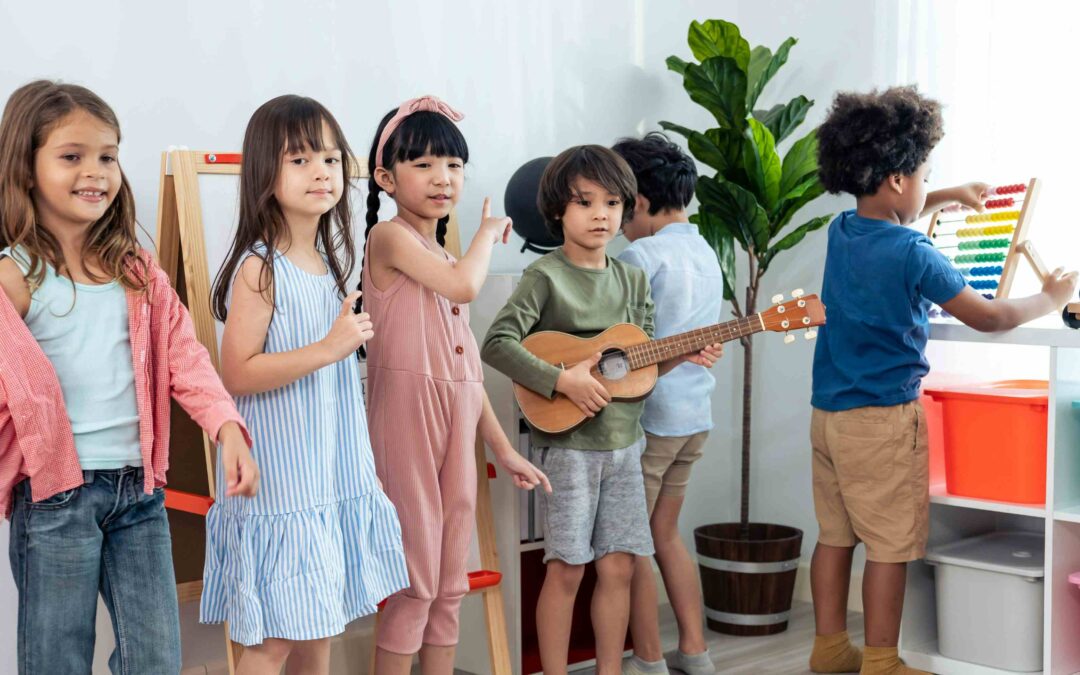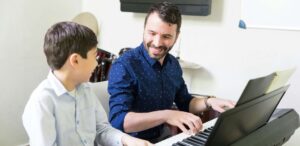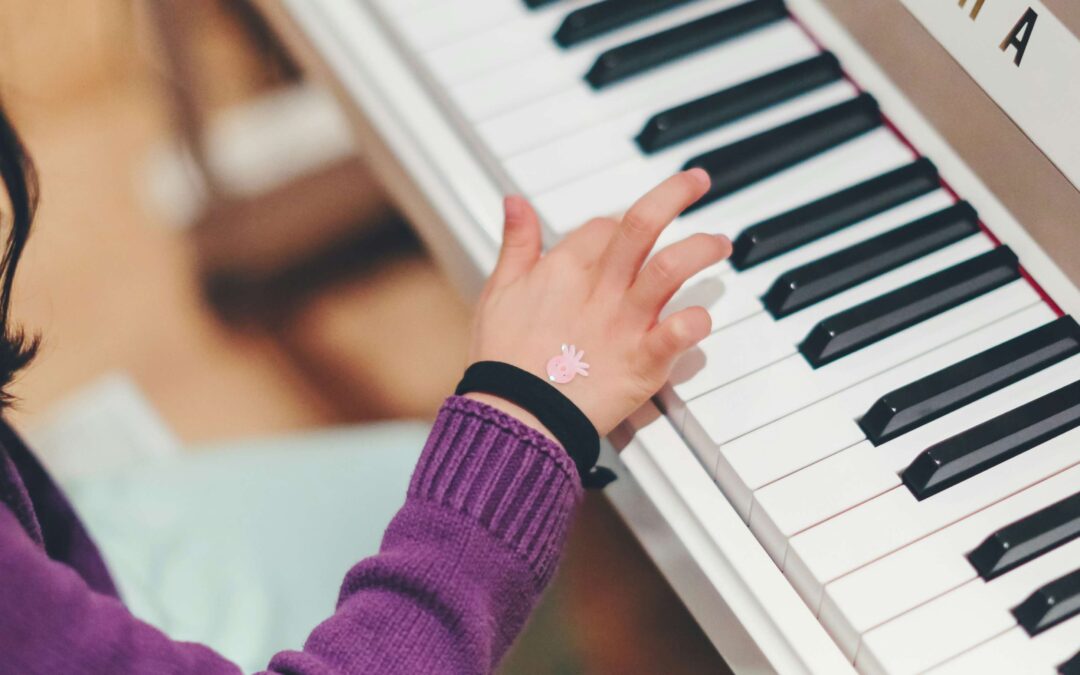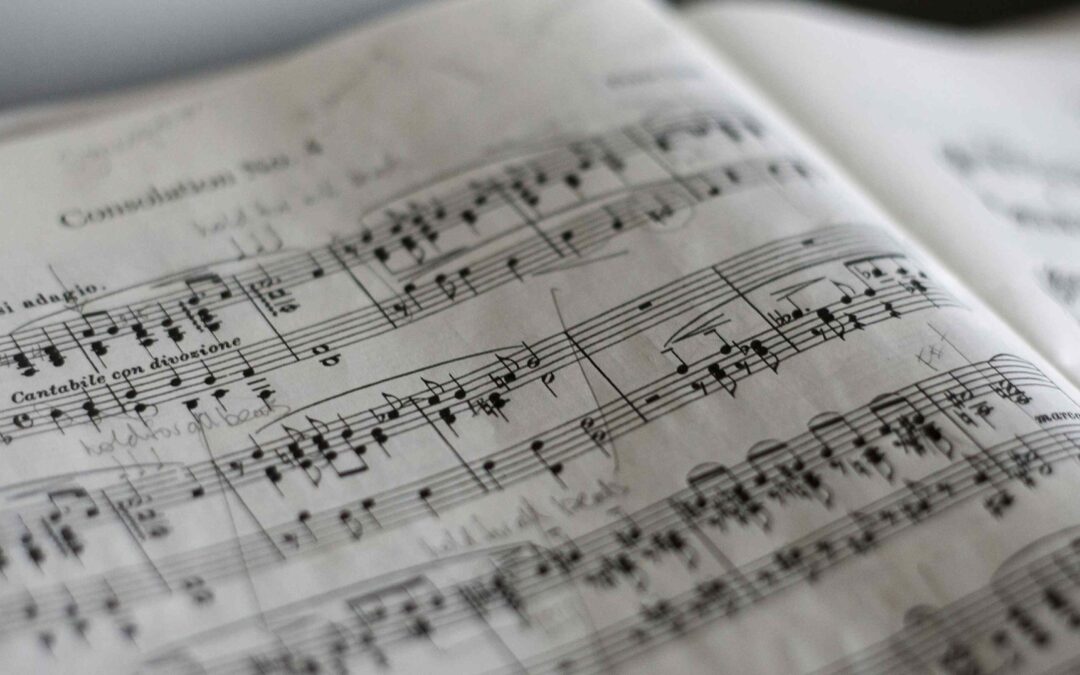
Group Music Lessons: Building Teamwork and Creativity in Primary Music Curriculum
Instrumental ensembles are a powerful addition to any primary music curriculum, offering students the opportunity to experience the joy and challenge of making music together. At Ready Set Rock, we offer group music lessons that go beyond individual skill development; they also build essential teamwork and foster creativity. Whether it’s through our guitar, percussion, or piano ensembles, students discover what it means to be part of a musical team, with each member playing a unique role. These experiences are not only fun but also valuable in helping young learners develop critical social and creative skills.
Ready Set Rock’s ensemble programs emphasise the collaborative aspect of music, where each child learns to blend their talents with others. When students work together in a musical setting, they learn about the importance of teamwork, communication, and the rewarding feeling of achieving something collectively. From listening and coordinating to creatively contributing their own ideas, ensemble students are shaping their skills in ways that benefit them well beyond music class.
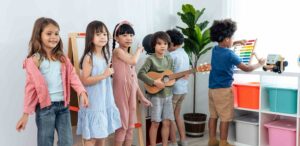
The Power of Teamwork in Music
Group music lessons in instrumental ensembles offer a dynamic environment for students to learn the fundamentals of teamwork. In an ensemble, each child plays a distinct role, contributing to the larger sound while learning how to support and rely on their peers. This collaborative approach is invaluable for young students, as it teaches them that every contribution matters and that success is achieved as a group. The primary music curriculum at Ready Set Rock includes opportunities for students to experience these crucial team-building lessons.
Students in our ensembles quickly learn the importance of listening to others, matching their timing, and working in harmony. They see firsthand how each musician’s role, however big or small, affects the performance of the group as a whole. Through ensemble participation, children build responsibility and a sense of accountability, as each person’s participation directly impacts the success of the performance. By developing these skills in a supportive setting, students gain confidence, mutual respect, and a strong foundation in the principles of teamwork that apply across many areas of life.
Nurturing Creativity Through Group Music
Playing in an ensemble nurtures creativity in ways that solo practice often cannot. Group music lessons encourage students to explore their creativity within a structured environment, allowing them to contribute ideas, experiment with sound, and collaborate on musical expression. Ready Set Rock’s primary music curriculum emphasises the value of creativity in learning, and ensembles provide a perfect platform for children to express their individuality within the context of a team.
Each student brings their own interpretation and unique style to the group, creating a dynamic blend of ideas and sounds. In Ready Set Rock ensembles, children are encouraged to improvise, play with rhythm and harmony, and try new things—skills that are essential for creative growth. This creative experimentation enhances their musicality and builds confidence in expressing their ideas, both musically and otherwise. By learning to balance their creative impulses with the needs of the group, students become adaptable, inventive musicians who thrive in collaborative settings.

Ensemble Offerings at Ready Set Rock
Ready Set Rock is proud to offer a diverse range of group music lessons within our primary music curriculum, allowing students to explore various instruments and musical genres. Our ensemble options include guitar, percussion, piano, and mixed-instrument ensembles, each tailored to engage students at different skill levels and musical interests.
- Guitar Ensemble: Students dive into chords, rhythms, and harmonies, learning to play as a cohesive unit while exploring a range of musical styles.
- Percussion Ensemble: Focusing on rhythm, timing, and coordination, this ensemble helps students build a strong foundation in rhythm and pulse, essential skills for any musician.
- Piano Ensemble: This ensemble combines the expressiveness of solo piano with the unique experience of harmonising and performing together, allowing pianists to learn the art of ensemble playing.
- Mixed-Instrument Ensemble: This group brings together students playing different instruments, teaching them how to balance diverse sounds and musical roles to create a unified piece.
Each ensemble encourages students to apply what they’ve learned in individual lessons to a group setting, broadening their musical perspective and enhancing their listening and cooperation skills. These ensemble options give students a chance to experience the thrill of playing music as part of a larger group, while developing their technical and expressive abilities in a collaborative setting.
The Long-Term Benefits of Ensemble Experience
The benefits of participating in group music lessons extend well beyond the music classroom. Being part of an ensemble helps students develop resilience, adaptability, and a sense of confidence that contributes to their personal growth and academic success. Research has shown that students involved in music often demonstrate improved cognitive skills, including memory, focus, and problem-solving—all of which positively impact their academic performance.
Ready Set Rock’s primary music curriculum incorporates ensemble experience as a key part of holistic education. Students not only improve their musical skills but also develop important social and emotional skills, such as patience, perseverance, and empathy. These life skills prepare them for future challenges, enabling them to work effectively in team settings and adapt to various group dynamics.
Participation in an ensemble also builds a strong sense of accomplishment and pride, especially when students prepare for end-of-year performances. These showcases provide an opportunity for students to demonstrate their hard work, creativity, and dedication, leaving them with a lasting sense of achievement and motivation to continue their musical journey.
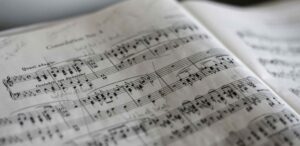
Testimonials and Real Stories
Nothing highlights the impact of Ready Set Rock’s ensemble programs better than real stories from students and teachers. Mr. Joseph Rabjohns, who leads several of our group music lessons, has seen firsthand how the primary music curriculum at Ready Set Rock fosters both musical growth and personal development. He notes, “Seeing students come together in an ensemble is inspiring. They learn not only to play well but to listen, adapt, and create something beautiful as a team.”
Our students also love the sense of belonging and collaboration that ensemble playing brings. One young guitarist recently shared, “Playing in the guitar ensemble is my favourite part of the week because we all get to make music together, and it feels like we’re a band!” Such testimonials show that our students don’t just learn music; they gain friendships, shared goals, and the joy of collective achievement.
For many students, ensemble experiences become highlights of their school years, giving them memories and skills that last well into adulthood. The supportive environment at Ready Set Rock ensures that each child feels valued, capable, and excited to contribute to the music we make together.
How to Get Involved
Getting involved in Ready Set Rock’s group music lessons is easy and rewarding! Our primary music curriculum is designed to welcome students of all skill levels, offering a variety of ensemble options to fit different musical interests. Parents interested in enrolling their children can reach out directly to learn more about our ensembles in guitar, percussion, piano, and mixed instruments. Our instructors are dedicated to helping each child find the ensemble that best matches their interests and abilities, ensuring a supportive, inspiring learning experience.

Instrumental ensembles are a vibrant part of Ready Set Rock’s primary music curriculum, providing students with the invaluable experience of making music in a group setting. Through group music lessons, children learn the importance of teamwork, collaboration, and creative expression, all while building essential life skills. Each ensemble experience reinforces the idea that music is a shared journey, filled with discovery, cooperation, and a lot of fun along the way.
As we watch our students grow through ensemble participation, we see them build confidence, connect with peers, and take pride in their accomplishments. Ready Set Rock is committed to nurturing these young musicians and empowering them through music. To learn more about our ensemble programs and see how your child can benefit from the joy of group music, reach out to us and take the first step toward an exciting musical adventure!

